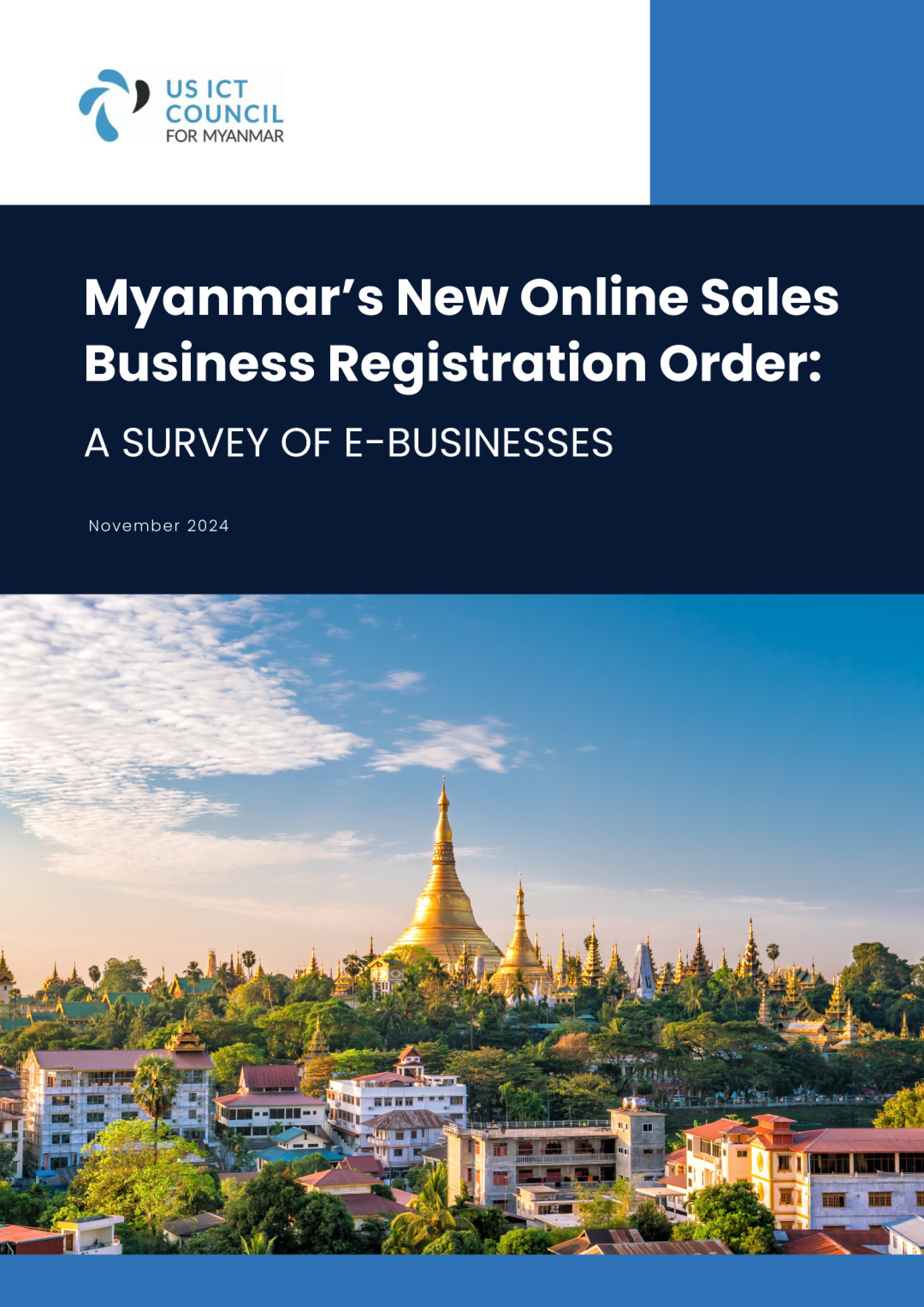
Formalizing online businesses can positively contribute to a nation’s economic development, through building public trust in e-commerce, creating a larger tax base, and improving data, amongst other benefits. But mandating registration without also implementing a broader strategy and ensuring a supportive environment can instead result in businesses either closing or operating outside the law, which in turn opens them to numerous other risks and represses growth of the sector. The potential negative repercussions can be even greater in a context of economic and political uncertainty, as is currently the case in Myanmar.
In January 2024, the Online Sales Business Registration Order took full effect, requiring all e-businesses in Myanmar to be registered with the Ministry of Commerce (MoC). Months later, many small and micro enterprises have still not completed the registration process.
To better understand the public’s thoughts about this Order, we conducted a survey of people operating e-businesses in Myanmar. This paper will provide survey data from e-commerce micro-enterprises in Myanmar regarding their perceptions about the e-commerce related regulations, the risks they face, their concerns, and their motivations for complying or not complying with the MoC regulatory guidelines.
Contributing Authors
This paper was produced by US-ABC affiliate, the US ICT Council for Myanmar.
Gretchen Kunze: Executive Director of the US ICT Council for Myanmar, K. Thuzar: Independent Consultant (Research and Policy) and Independent researchers.




